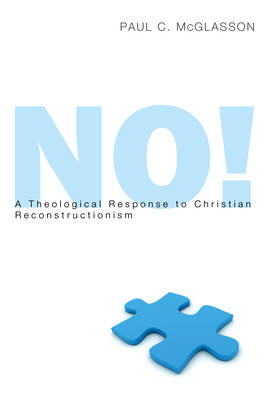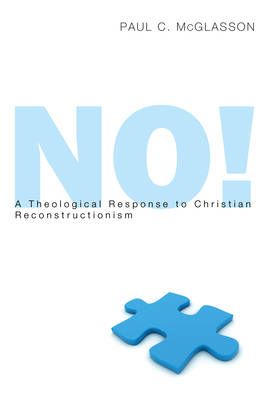
Bedankt voor het vertrouwen het afgelopen jaar! Om jou te bedanken bieden we GRATIS verzending (in België) aan op alles gedurende de hele maand januari.
- Afhalen na 1 uur in een winkel met voorraad
- In januari gratis thuislevering in België
- Ruim aanbod met 7 miljoen producten
Bedankt voor het vertrouwen het afgelopen jaar! Om jou te bedanken bieden we GRATIS verzending (in België) aan op alles gedurende de hele maand januari.
- Afhalen na 1 uur in een winkel met voorraad
- In januari gratis thuislevering in België
- Ruim aanbod met 7 miljoen producten
Zoeken
€ 55,95
+ 111 punten
Uitvoering
Omschrijving
Sometimes theological ideas are good topics for ongoing debate. Other times, the community of faith needs to come to a decision: yes or no. Christian Reconstructionism offers the Christian church a basic approach to faith different from mainstream historic Christianity. Is their approach warranted? Or is it a fundamental distortion of the gospel? The present volume seeks to set out the case that Christian Reconstructionism is not a legitimate variation of Christian doctrine, but rather a serious misunderstanding of the gospel attested in Holy Scripture. First, an attempt is made to look at the basic ideas of Christian Reconstructionism. Rather than focusing on names and dates, the focus is on the set of ideas that characterize this view of Christianity. Second, a response is given to each of the main ideas. The response makes use of traditional Protestant, Roman Catholic, and Eastern Orthodox doctrine; but it is based primarily on careful exegesis of Scripture. The ultimate question is if Christian Reconstructionism is grounded in the Bible, or in a political ideology foreign to Scripture. An epilogue briefly points to a different way of seeing Christian involvement in contemporary, global society.
Specificaties
Betrokkenen
- Auteur(s):
- Uitgeverij:
Inhoud
- Aantal bladzijden:
- 144
- Taal:
- Engels
Eigenschappen
- Productcode (EAN):
- 9781498214780
- Verschijningsdatum:
- 1/06/2012
- Uitvoering:
- Hardcover
- Formaat:
- Genaaid
- Afmetingen:
- 152 mm x 229 mm
- Gewicht:
- 385 g

Alleen bij Standaard Boekhandel
+ 111 punten op je klantenkaart van Standaard Boekhandel
Beoordelingen
We publiceren alleen reviews die voldoen aan de voorwaarden voor reviews. Bekijk onze voorwaarden voor reviews.









